Mi’raj News Agency (MINA) Reporters Team conducted a virtual exclusive interview with Dr. Hajriyanto Y Thohari Ambassador of the Republic of Indonesia (LBBP RI) to Lebanon.
Prior to his appointment as the Indonesian Ambassador to Lebanon, Hajriyanto Y. Thohari was Deputy Chairman of the Indonesian People’s Consultative Assembly (MPR) 2009-2014.
Previously, he served as a member of the Indonesian Parliament for four terms (1997 – 1999, 1999 – 2004, and 2004 – 2009). As a member of the council, he was also known to have critical statements, among others, regarding the overseas trips of members of the DPR RI.
Hajriyanto is also a Muhammadiyah cadre. After completing his postgraduate education at the UI Anthropology Department, Hajriyanto was then trusted to be the General Chair of PP Pemuda Muhammadiyah for the 1993 – 1998 period.
Also Read: Strengthening Bridges of Friendship and Cooperation between Indonesia and African Countries
MINA team consisted of General Leader Arif Rahman, Editor in Chief Ismet Rauf, Chief of Arabic Desk Rifa Berliana Arifin, Chief of English Desk Sajadi and international journalist Astuti.
In an interview with Ambassador Talks entitled “The Future of Lebanon after the Big Explosions” which was held on Friday, Ambassador Hajriyanto from Beirut stated that Indonesia and Lebanon have a history of very close relations in various fields. Historically, Lebanon is the first three countries to recognize Indonesia’s sovereignty after Egypt and Syria.
The following is an excerpt from the interview:
MINA: Could you describe the development of bilateral relations between Indonesia and Lebanon? Which sectors have the potential to be improved?
Ambassador Hajriyanto: Diplomatic relations between Indonesia and Lebanon can be said to be quite friendly and warm.
Historically, Lebanon is the first three countries to recognize Indonesia’s sovereignty after Egypt and Syria.
Lebanon has also always supported Indonesia in various international forums and in various multilateral organizations. Lebanon, even in many elections in international bodies, has always provided support by selecting candidates from Indonesia.
In addition, there are a number of 1,234 personnel of the Garuda Contingent of UN peacekeepers in Lebanon (UNIFIL). Currently, it is the largest army compared to other countries. For years, Garuda troops have been trusted as UNIFIL peacekeepers.
Also Read: Ambassador: Climate Change is the Main Cause of Floods in Pakistan
So far, many Indonesian officials have visited Lebanon, starting from the Chairman of the MPR, the Speaker of the DPR, the Coordinating Minister, the Minister, to the TNI Commander.
However, there have never been any high-ranking Lebanese officials to Indonesia, because of the situation in Lebanon.
Even so, the relationship between the Indonesian and Lebanese people is even closer.
Many Indonesian figures and non-governmental organizations often visit Lebanon to provide humanitarian assistance to Palestinian and Syrian refugees.
In addition, there were nearly 100 Indonesian students studying in Lebanon before the crisis. As many as 90 percent of them study religion, considering that only this department provides scholarships for Indonesian students.
MINA: Economic diplomacy is President Jokowi’s mandate for Indonesian Ambassadors abroad. Could you describe the relationship between the two countries in this sector, especially in the export-import sector?
Ambassador Hajriyanto: The big explosion that occurred in Beirut greatly affected the Lebanese economy and also the export-import balance between Indonesia and Lebanon, even two other fields of economic diplomacy, namely Tourism from Lebanon to Indonesia also dropped dramatically. With this economic situation, the relationship between the two countries in trade, tourism and investment will be difficult to develop. In fact, this year it has drastically decreased.
Although on the other hand it is interesting to note that Beirut itself is known as the Capital of the World Books which means the center of the large production of Arabic books and books in the Middle East, and surprisingly that 68% of the paper raw material required by Lebanese printers is imported from Indonesia and the rest from several other countries and after becoming a book, it is exported back to Indonesia, after the paper is printed in book form, it is re-exported to Indonesia.
Also Read: AMBASSADOR TALKS/Russian Ambassador: Attack on Ukraine Tough Choice to Make
Of course, this is a potential for economic and literacy improvement at the same time for Indonesia, therefore we are making lobbying efforts so that book and book printing companies are made in Indonesia. Besides that, it will facilitate the production process, and can also cut operational costs quite significantly. However, due to the Covid-19 outbreak, this plan was delayed.
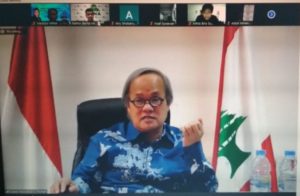
The virtual interview atmosphere of the Indonesian Ambassador to Lebanon with the MINA News Agency
MINA: How special is the Indonesian troops in the eyes of the Lebanese side?
Ambassador Hajriyanto: Indonesian troops in Lebanon, not only become peacekeepers but also ambassadors for the nation and state to introduce Indonesian culture.
Since 1960 Indonesia has been a peacekeeping force, Indonesia has actively participated in carrying out the UN mission to maintain world peace.
Also Read: Palestinian Administrative Detainees Boycott Occupation Courts for 40th Consecutive Day
After the civil war in Lebanon, Indonesia sent a peacekeeping force called the Garuda Contingent. From the 41 countries that sent peace troops to Lebanon, called UNIFIL, Indonesian troops are the largest.
In South Lebanon, where the headquarters of the Garuda Indonesia Contingent forces the Indonesian troops are very fond of is known for being very warm, friendly with the local population.
The point is that Indonesian troops have high professionals.
Indonesian forces also often collaborate with the Indonesian Embassy to invite students to visit warships, where they are given information about Indonesia, its territory, its inhabitants, its culture, as well as the arts and very important Indonesian culinary delights.
Also Read: Interview with Pakistani Ambassador to Indonesia: Kashmir Solidarity Day
We will also reward members of the Garuda Contingent for carrying out cultural diplomacy
Being a peacekeeping force is not easy, there are often incidents between the community and peacekeepers sent from various countries but this almost never happens with forces from Indonesia.
What are the new challenges for Lebanon after the big explosion in Beirut?
Lebanon is one of the most democratic Arab countries. The future of Lebanon itself depends on how they get a democratic system that is in line with their culture of freedom and gender equality. This good democracy will shape Lebanon’s future. We see today, even though there is no cabinet, life here is still going well, in Lebanon the people are stronger than the country. This is from a political perspective.
Also Read: Khaled Meshaal to MINA: Indonesia is at the Forefront of Those Who Support Palestinian Cause
From an economic perspective, many of the Lebanese diaspora send money into the country, so even if there is a lot of chaos, the Lebanese economy can continue to run. The infrastructure here is also quite good. Then, Lebanon itself has the highest economy in the service sector and banking technology in Arabia. For tourism itself, Lebanon is also in the largest area before the crisis that occurred yesterday.
As for the future of their culture and civilization, they are also supreme. Lebanon publishes a lot of books, not to mention the number of Lebanese researchers who are also the largest in the Arab world. Beirut itself has been designated as the world’s book capital by UNESCO.
So, if Lebanon manages to overcome the crisis politically, this country will become a very developed country, plus their service economy is also very high.
MINA: There is a motto similarity between Indonesia and Lebanon, namely unity in diversity, very similar to Bhineka Tunggal Ika. Can you describe the similarity?
Also Read: Ambassador: Many Opportunities on Relationship Between Indonesia-UAE
Ambassador Hajriyanto: Like in Indonesia, Lebanon, which is a country with sectarian diversity, has a fairly high level of tolerance.
In the life of Lebanese society, tolerance is quite high, in Beirut there are six large mosques that were built around 2006. The large mosque is adjacent to a church which is also the same size and has become an icon of Beirut
The mosque itself is named Mohammad Al-Amin which has dominated Beirut’s skyline for more than 10 years and St George’s Cathedral which has four bell towers as high as 72 meters, the same height as the mosque’s four minarets.
There is no religious conflict in Lebanon. People respect each other’s choices. This high sense of respect and freedom makes Lebanon safe from crime.
Also Read: Exclusive Interview with Indonesian Ambassador to Afghanistan
MINA : As a country adjacent to Palestine and Israel, how does Lebanon see a solution to the conflict between these two countries?
Ambassador Hajriyanto: Because Lebanon is directly adjacent to Palestine, most of the Palestinian refugees are in Lebanon. However, currently, the number of Palestinian refugees has decreased. According to information from the institution that deals with refugees, the number is around 200-300 people and has reached the third generation.
However, it became difficult for Lebanon during the civil war in Syria, where the number of Syrian refugees alone reached one and a half million. This is of course a heavy economic burden for Lebanon.
For Palestinian refugees, I often chat with them when I meet at the mosque. They said they were still Palestinians and would not be Lebanese. They said “what about our country if we become Lebanese citizens”.
I am very amazed by the great sense of nationalism of the Palestinian refugees, how they instill a national ideology that is still strong enough to even the third generation.
The refugee problem for Lebanon is quite complex. Many problems arise such as jobs, which are also needed for the Lebanese people themselves.
So far, there has been a lot of assistance from the Indonesian people which is quite high for refugees. Apart from social and humanitarian assistance, there are currently schools built for them.
Lebanon does not have diplomatic relations with Israel, so its citizens are not even allowed to go to Palestine because they have to pass through Israeli territory. If you are desperate to leave, you cannot return to Lebanon. The smell of hostility between these two countries is indeed quite harsh. I have attended many poetry concerts here, the people and artists regardless of their religion really hate Israel, it can be seen from the poetry they read. (RA-1 / RE-1 / P2 / R07 / R09-P1)
Miraj News Agency (MINA)






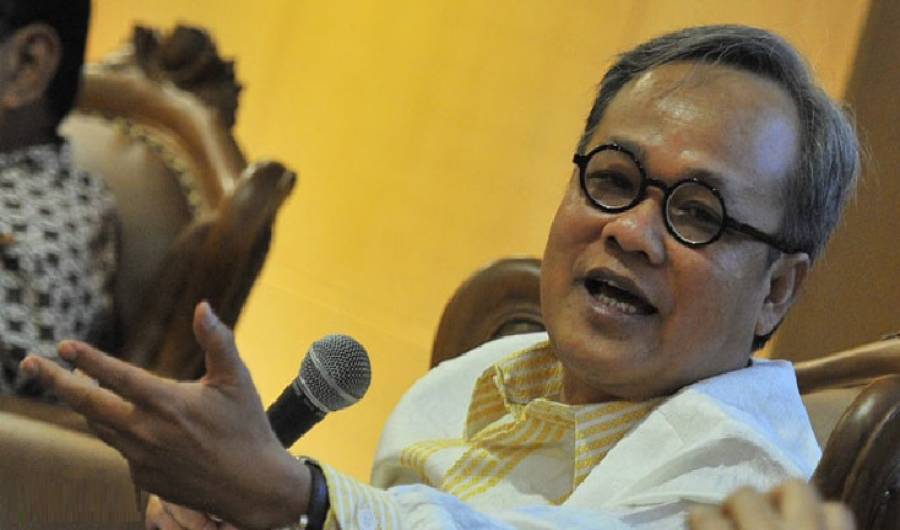

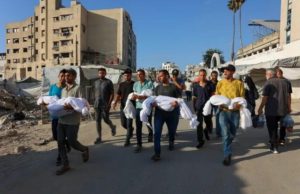
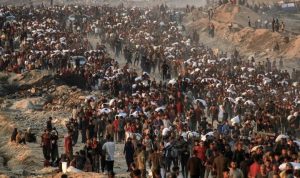
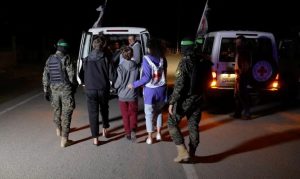
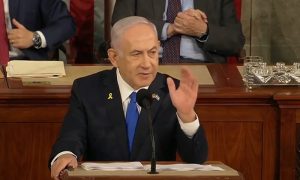



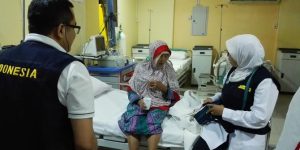
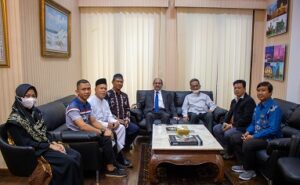
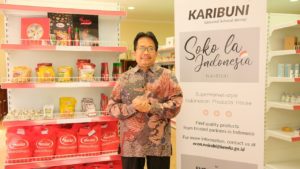
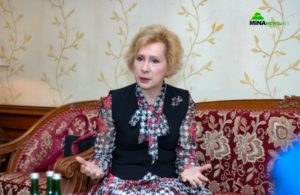
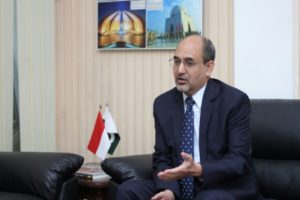
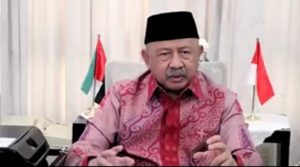
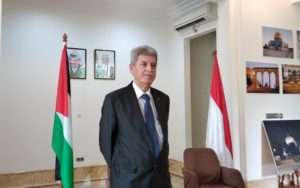






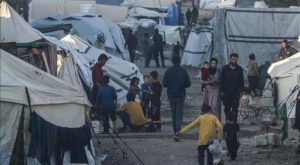

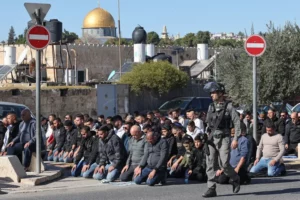

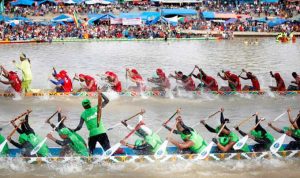




 Mina Indonesia
Mina Indonesia Mina Arabic
Mina Arabic